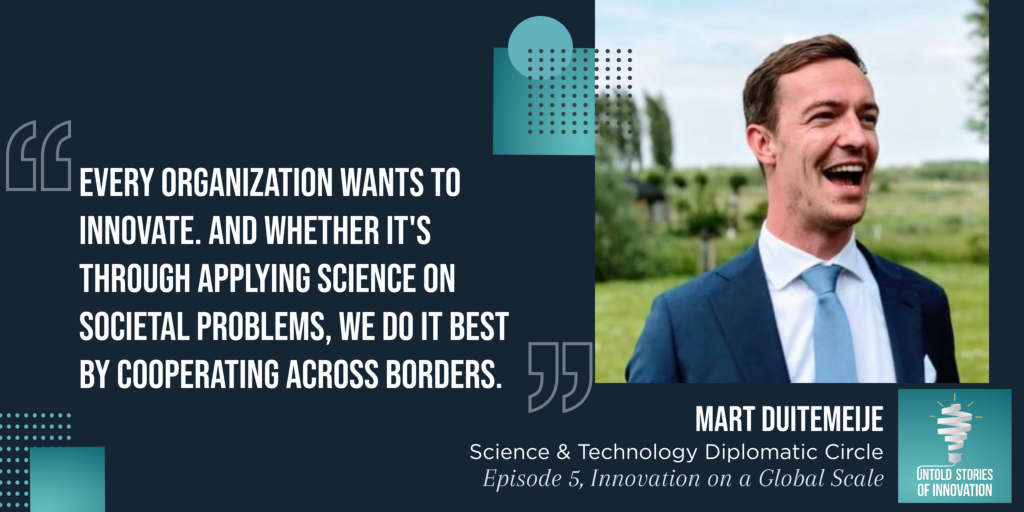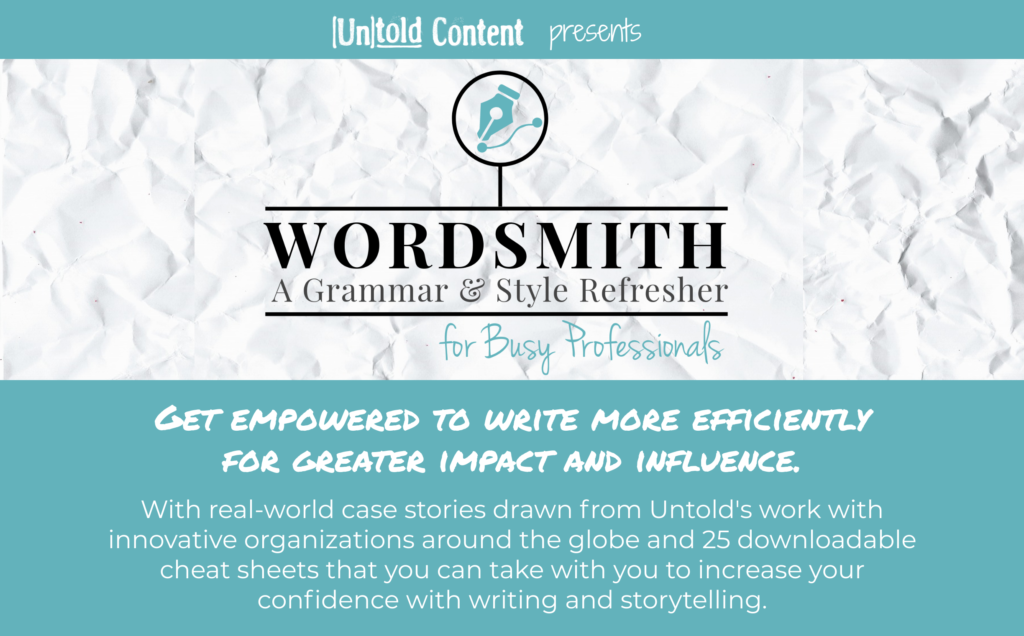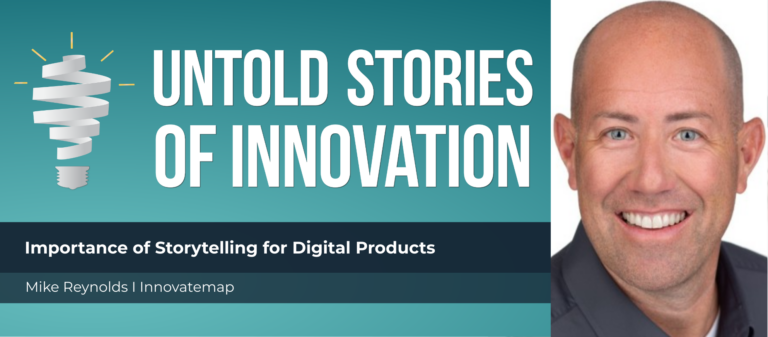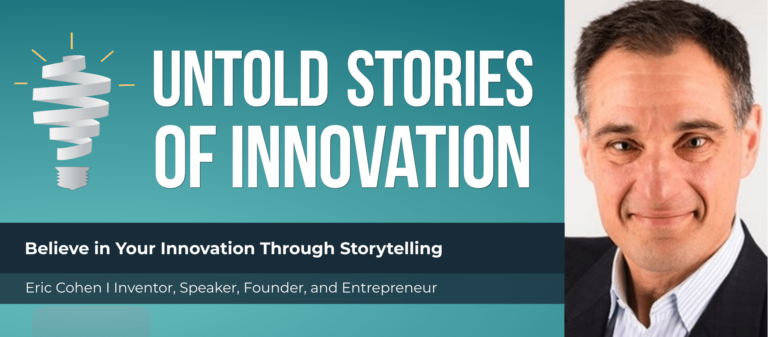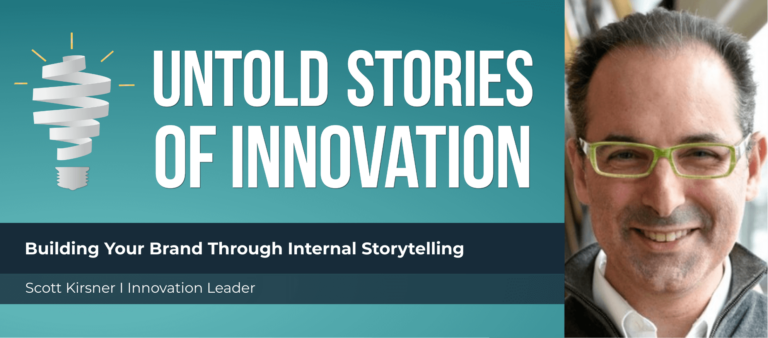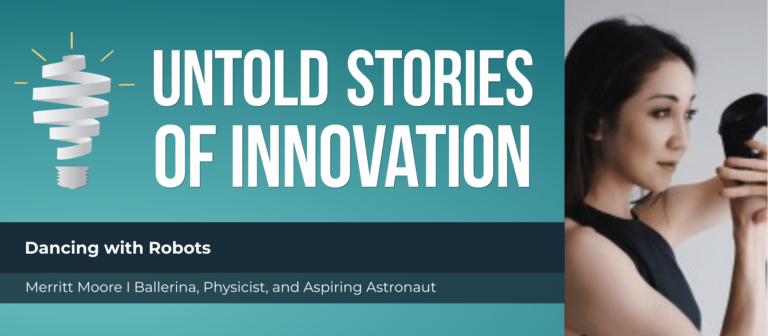Innovation on a Global Scale with the Diplomatic Tech Circle
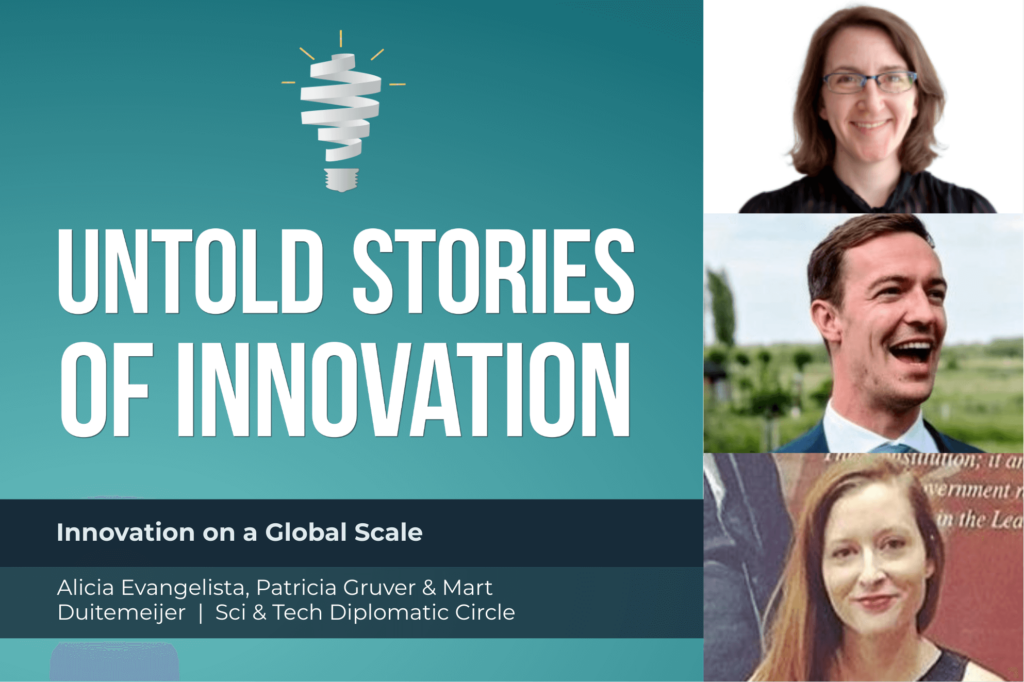
Innovation on a Global Scale - Untold Stories of Innovation
“There’s been no better time to tell clear stories about science than today. And that is quintessentially the job of the scientist, regardless of their nationality or their location. And we have so many people who are talented at asking questions and they’re talented at answering them in really innovative and unique ways. But if they can’t convey that to the public, if they can’t translate that information or those ideas into a product, then it gets lost.” —Alicia Evangelista, Head of Innovation+ at Swissnex Boston
From today’s episode you’ll learn:
Why do stories matter to the innovation process? What values can be instilled in innovators who share stories? How do innovation leaders inspire creators to tell and share their success and failure stories?
In this episode we talk with Alicia Evangelista, Patricia Gruver, and Mart Duitemeije about innovation ecosystems around the world and the global response to COVID-19. Our guests are shaped and informed by their former roles as scientists and current involvement with the Science and Technology Diplomatic Circle in Boston. Alicia is the head of Innovation+ at swissnex Boston. Patricia Gruver is research, innovation, and trade attaché for the Quebec government in Boston. And Mart Duitemeijer is the attaché for innovation at the Netherlands Innovation Network. Patricia and Mart are also co-chairs of the Science and Technology Diplomatic Circle in Boston. Together, they emphasize the power of storytelling to increase cross-cultural awareness of science and innovation.
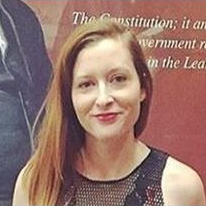
Patricia Gruver is the Research & Innovation Attaché at the Québec Government Office in Boston, where she facilitates research and technology partnerships between Québec and the United States. She also serves as the co-chair of the Science & Technology Diplomatic Circle in Boston, an organization of 67 countries with international offices in the Boston region. Patricia received a Bachelors in Biology from Ursinus College in Pennsylvania and a Masters in Public Health from the University of Sydney in Australia. She has worked for the University of New South Wales and Harvard University on international cancer research projects. Before working for Québec, she worked for the UK Science & Innovation Network for three years where she led the oceans and communications effort for the entire US team. In this role, she represented the UK at the first UN Oceans Conference in 2017 and received an award for her communications work. In June 2018, Patricia was a member of the 2018 cohort for the AAAS Science Diplomacy and Leadership Workshop in DC.

Alicia Evangelista joined swissnex Boston as the Head of Innovation+ in 2019 and is responsible for bridging the technology ecosystems of Boston and Switzerland for startups, corporates, and foundations. Before joining swissnex, Alicia worked as a technology scout and consultant at yet2, catering to the Open Innovation needs of Fortune 500 companies and the US Government, including NASA and NIST. Alicia also worked as both a laboratory scientist and technology transfer specialist at the National Institutes of Health after earning her doctorate in Molecular Medicine from Boston University.
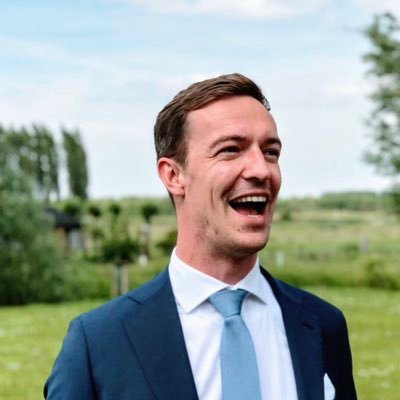
Mart Duitemeijer is Attaché for Innovation at the Netherlands Innovation Network, the science and technology arm of the diplomatic network of the Netherlands. In this role, he promotes international cooperation between entrepreneurs, academics, and governments in the fields of innovation, technology, and science. Before coming to Boston, Mart held several positions at the Ministry of Economic Affairs and Climate Policy and represented the Netherlands in negotiating energy and climate policies in the European Union. Prior to joining the Ministry, Mart co-founded a startup focused on science communication.
Katie [00:00:04] Welcome to Untold Stories of Innovation, where we amplify untold stories of insight, impact and innovation. Powered by Untold Content. I’m your host, Katie Trauth Taylor. Our guests today are Patricia Gruver. She is a research, innovation and trade attaché for Quebec government in Boston. Alicia Evangelista, who is the head of Innovation+ at swissnex Boston. And Mart Duitemeijer, who is attaché for innovation at the Netherlands Innovation Network, which is part of the Dutch government. Patricia and Matt also co-chairs of the Science and Technology Diplomatic Circle in Boston. Thank you so much to the three of you for being on the podcast today.
Alicia [00:00:48] Thank you for having us.
Mart [00:00:49] Happy to be here.
Katie [00:00:50] I’m really excited to hear your insights on how we can tell stories of innovation across cultures in order to spark really global collaboration around innovation initiatives. So first, I’d love to just hear—could you tell us a little bit more about your personal story of innovation? Alicia, do you want to kick us off?
Alicia [00:01:09] Yeah, I’m happy to. So I personally have always been really interested in asking and answering questions, particularly around science, the way the world works, and the way our bodies work. And for me, that meant getting my PhD in molecular medicine and then eventually discovering that there’s more to the world than just being in the lab, particularly the fields of technology transfer and open innovation. So my professional journey started with the U.S. federal government. Then I moved into the private sector as a consultant for open innovation. And now I’m back working for the Swiss government, specifically Swiss Next Boston, where we help others—entrepreneurs, academics and various stakeholders in Switzerland—access foreign markets and understand the differences in culture of innovation in Switzerland. And in my case, in the U.S.
Katie [00:02:01] That’s incredible. Thank you so much for sharing. Patricia, what about you?
Patricia [00:02:06] I feel like me and Alicia’s background is similar, although I don’t have a PhD. I have a master’s. I did a master’s in public health and epidemiology. And I basically worked in public health and epidemiology research after I graduated from school but realized that I wanted to also get a bit outside of the lab or in my case, you know, get away from doing research and statistical epidemiology. So, you know, I found this role within—I started at the British government, actually, and then I eventually moved over to the Quebec government, where I am now, working as a research and innovation attaché. And what I was really interested in was looking at how to connect the science and innovation ecosystems initially between the US and the UK and now between Quebec and New England. And as you can imagine, Quebec in New England are very close to each other. You know, it’s about a five-hour drive between Boston, Montreal, but there are differences in culture. And so my job is to translate that and to help make those connections between the innovation ecosystems in Quebec and in New England.
Mart [00:03:30] Yes, sure. So I also did, like Patricia did, the Masters. And then I actually found a company on science communication, after which I rolled into the government, where mostly the positions in energy and climate policy and surrounding innovation energy. And interestingly enough, I found that—what I find the most interesting angle in innovation and science and technology in general is how it can change the world and how it can actually create societal benefit. And if I look at what we are doing in Boston, we are similar to Patricia. We’re really trying to bridge the ecosystem or bridge to Atlantic from the Netherlands to Boston and see how we can make those ecosystems really match each other and make best use of each other in a few specific fields. But we can touch upon that later. I can definitely see how, at this point, having clean technologies, for instance, there is a lot that Boston can learn from the Netherlands in climate resiliency, but also how a lot of technologies that are being developed in Boston can benefit the Netherlands. That being said, I think generally innovation for me—if you ask a personal question, it’s also really a question like how does it happen? And that’s something I’ve been discovering over the last year. Like every organization wants to innovate. Right. And whether it’s through applying science on societal problems, and there’s a lot of fear about how we can best make this process happen. And I think in my opinion, we do it best by cooperating across borders.
Katie [00:05:08] Absolutely. Tell us a little bit more about the Science and Technology Diplomatic Circle and the number of countries and stakeholders involved in that organization.
Alicia [00:05:17] Yeah. There’s about sixty-seven or so, give or take, member organizations and that includes regional governments like myself. And then, you know, governments like Switzerland, the Netherlands, who are based in the Greater Boston region and have an interest in emerging science and technology trends and issues. So normally each month we go to see, you know, what innovation is happening around the Boston area that we might not be aware of. So, for example, about a month and a half ago, we visited the Tough Silk lab. And, you know, before I went there, I was thinking, well, you know, why would I really be interested in silk? Like I was thinking it was more fabric based. And then you go there and you realize how they’re turning silk into these smart materials, you know, that can be used for things, you know, like putting an electrode on a piece of dissolvable material in your mouth to determine how you’re chewing, for example. So, you know, it’s really innovative thinking. And so we rely on our members. So the different countries come up with these visits. You know, this one has a lot of—the Tough Silk lab had a lot of links to Italy. So, you know, we—I think it was a suggestion from one of our Italian members. And then, you know, we might think of other places that are really thinking outside of the box and might be of interest to the members in terms of future partnerships or just to understand really what’s happening in the Boston ecosystem in order to better inform their science and innovation strategy in the region.
Katie [00:07:08] It’s incredible. The idea that, of course—I think it’s just very helpful for the innovation community. Those of you who are listening, who maybe don’t know that there are global efforts happening on this scale and that this can happen at a regional and a cross-country level. It’s really inspiring to hear that you are uniting together and sort of taking tours and trend analysis together to understand where innovation exists and how it might work cross-culturally. Can you tell us a little bit about your personal perspectives on storytelling and the role that it plays in innovation?
Mart [00:07:45] It’s one of the most important parts, and I don’t think we’re doing—to put it frankly—I don’t think we’re doing it well enough. What I think what we all observe is that within certain communities—so I do within the science community or within more of, say, the biotech community—there’s a lot of communication and people do understand each other. But to bring it out into the world is something that a lot of people are trying. But I think storytelling in there is a very important part of it, as it might not be as obvious to someone who is further away from a very complex technology, say quantum computing, to see how that could actually impact and change the whole world for the better. And for those kinds of stories, we need people who can actually tell a story in a way that’s understandable to everyone. I would say.
Katie [00:08:39] There’s a term that I studied when I was a professor called public intellectualism, which is the idea that the public can, in fact, understand the insights of experts, that they deserve to be knowledge makers and to understand knowledge and that if the intellectuals in our community and the experts in our communities can make a concerted effort to value communicating to the public, that we’re all going to benefit as a result from that. So it speaks to me—what you’re saying sort of speaks to me of the value of public intellectualism overall. So thanks for sharing this thought, Mart.
Patricia [00:09:17] And I would—this is Patricia here—I would add that I think storytelling is something that we do every day in a way. You know, there are so many stakeholders in the Boston ecosystem. You know, this is one of the two innovation hubs in the US and, you know, one of the life sciences—I would say top life sciences hub in the world. And so, you know, our challenge every day is getting people’s attention to maybe, you know, think about partnerships with institutions or universities in our respective regions to, you know, attract them to work with those institutions or universities, for example. So I would say that storytelling really helps us in our day to day jobs. You know, some people might not understand that Quebec is actually a leader in artificial intelligence, for example. And it’s my job, as the science attaché for the Quebec government office in Boston, to go out and make sure the people in the AI eco ecosystem are aware of that. So, you know, making sure to meet with the right people and making sure to, you know, understand what’s happening in Montreal and to be able to let people know about that, you know, on a frequent basis is something that I think that we all do, especially, you know, as representatives of foreign governments.
Katie [00:10:41] Yes. What I love about all of your positions is that you are essentially ecosystem builders at the global scale. A lot of people sort of think about innovation ecosystem building at a city level or a regional level. And in the states in particular, we talk a lot about New York and Palo Alto or Silicon Valley as being the major hubs of innovation, and we’re making concerted efforts to show other, you know, potential innovation growth centers throughout the country. But I think it’s especially critical that we continue to think about where the innovation hubs exist around the world and continue to share and communicate amongst those communities so that we’re not leaving anything on the table when it comes to making sure that we’re finding ways to collaborate and not leave technology behind or opportunities behind.
Alicia [00:11:31] Absolutely. We actually just did a roundtable a few weeks ago with a company from Lucerne, Switzerland, and they were interested in what made Boston a biotech hub and how they could recreate that in their own area. And the ingredients that went into making Boston what it is are in some ways quite unique and time limited but in other ways not. And there’s so many ways that you can extract learning opportunities from the experience of other locations and of other cultures and apply them at home. And that’s really what we’re all about, is taking those learnings and communicating them.
Katie [00:12:05] Yes. Alicia, would you share a little bit more—and this is open to everyone, too. But what are some of the challenges of communicating innovation across cultures and across countries?
Alicia [00:12:15] Yes. I think it depends a little bit on which country. But, for example, Switzerland has a history of working in really high impact, high sensitivity industries like banking. And so then the national feeling is one of being risk averse. And so when you talk about innovation the American way, which is really quite risky. It’s fail quickly. It’s fail often, it’s pivoting. That’s not something that’s so comfortable to the Swiss people. And as they look for funding in the U.S. and as they look to partner here, the timescales are so different. And even the way that we speak to each other can be quite different across the cultures. It’s very important to have an interpreter of the stories and it’s very important to keep open communication. And that’s a little bit about what swissnex is doing, because you have to encourage these conversations, even if they don’t fit with their natural tendency. And that’s where the real synergies and the beautiful corporations come into play.
Katie [00:13:16] That’s such an important point. And so even thinking about the pace of innovation or the comfort level with discussing failures or successes. All of those aspects of storytelling that might work in one culture wouldn’t necessarily work in another. And you have to really be attuned to that and be aware of your cultural context.
Alicia [00:13:36] Exactly.
Katie [00:13:37] Yes. Patricia, what about the relationship between Canada and America or other countries in terms of how Canadians value innovation and approach it?
Patricia [00:13:48] Well, I think there are a lot of differences, even though we’re very close to each other. You know, one of the main differences I see is that a lot of entrepreneurs, when they come here, they’re not, you know, as aggressive as American entrepreneurs. And so we have to–or they’re more polite In a sense. You know, not saying anything bad about Americans. I’m American myself. But, you know, just trying to get them comfortable with how the American business and innovation ecosystem works. And, you know, get them comfortable with how to follow up. And so we do a lot of, kind of, two hour briefing sessions with startups and entrepreneurs from Quebec to make sure that they’re aware of, you know, the differences in culture in terms of, you know, how to follow up with somebody, how, you know, fund fundraising is different here in the US versus Canada. There’s a lot more—I would say, especially at the moment, a lot more of a government approached innovation in Canada than there is in the US. There’s a lot of money being poured in at the federal and the provincial level on what they’re calling super clusters, so Montreal has one. It’s an AI super cluster that is working on smart manufacturing. So the federal government’s dumping in a lot of money. And then the provincial government on top of that. We actually just had a group of people from Boston and Pittsburgh visit the Montreal AI ecosystem. And they were very, very impressed by how much coordination and funding and, you know, how many different actors were involved as opposed to, you know, the smaller, you know, governmental approaches that we have here in the US. So that’s been something that our American partners and colleagues would like to learn from Quebec. You know, how to engage more at the local and state level.
Katie [00:16:06] Yes. And how do startups in industry in Quebec obtain the interests of those government funds. Is it a grant writing process? Is it storytelling in other ways?
Patricia [00:16:18] So the process for receiving funding from the government is very similar to how it works here in the U.S. But there is a lot of collaboration with the industry and with key stakeholders. So we see that a lot of people will talk to their government counterparts before a call is launched. So it’s very collaborative. And to make sure it’s not a top-down approach, it’s more integrated with what the actual industry needs and wants.
Katie [00:16:50] That’s wonderful to hear. So there’s a lot of communication going back and forth. We talk about that a lot on this podcast, typically inside of an enterprise organization and how leadership needs to be communicating clearly with all sorts of departments within an organization. But in this case, it’s really critical—for a nation or even at a global scale—for all of our innovation leaders to come together and decide where are the areas that we most need to fund and pay attention to and build into for the betterment of all society. Is that some of the—is that sort of global view of alignment part of the conversations that you have in the science and tech diplomatic circle?
Mart [00:17:31] Yeah, I think—it’s actually an interesting question because it’s different for every country in the end. What are viewed as the biggest societal challenges we are facing. I think often we would discuss it with—amongst our colleagues, but it’s also something we really discuss at home. I think that every country will have its own priorities when it is about societal benefits. So that could actually be—for the Netherlands it would definitely be climate resilience. It’s life sciences and health. And more and more, you see that countries are not shaping their policy towards pumping a bunch of money in a certain industry, but way more looking at a certain challenge in society. And I do think there is a convergence in that. But I also think it’s a conversation that we should be having with these different countries together instead of all having our own priorities. But I’m curious to hear what Alicia and British think on that.
Alicia [00:18:29] Yeah, I would agree with that. We—there are some overarching global themes that I think, without any coordination, a lot of the countries in the STDC are probably working on. Artificial intelligence, data management, transparency, blockchain, food tech, sustainability initiatives and climate and bio sciences and life sciences. Just by nature of being in Boston, we’re all connected to that industry. But I think each country is handling how they decide what to go after in a very different way. And in particular in Switzerland, it’s very decentralized and a lot of the initiatives are starting at the cantonal level, which would be more like the state level in the U.S. and they’re transforming into these innovation valleys or regional clusters of industry. One of the newest ones is Food and Nutrition Valley, and that is an initiative by a number of large companies as well as some regional governments. There’s also an AI valley that has been around for many years to try and catalyze some change based on a number of different industries that do a lot of data handling. And so I think a lot of it has to do with what a country’s traditional strengths have been, but also the change that the leaders in that country but also the entrepreneurs are looking to make for their future. And I think there could be more collaboration amongst the different regions, certainly across the EU. There’s a lot of collaboration. But on a global level where we’re not yet seeing it.
Katie [00:20:00] These are such important, you know, goals for us to be striving towards in terms of communicating on a global scale. And I asked you to talk about challenges, but let’s talk about some successes as well. Could you share some of your current innovation projects that are working across countries or across cultures?
Patricia [00:20:17] Well, like I mentioned before, we had a group of Boston and Pittsburgh stakeholders in artificial intelligence come to Montreal in early 2020. And that’s part of an initiative that the three cities are working on called the AI triangle. And so it’s building a regional collaboration around artificial intelligence. And so some of the things that weren’t thinking about, you know, project wise within the AI triangle are supporting our entrepreneurs, looking at how to develop AI in an ethical and sustainable way and also to be more inclusive. And, you know, looking at diversity when hiring. And then also, how do we attract and retain, you know, our top talent in artificial intelligence? I think all three of the cities suffer from, you know—some of their top scientists going to Silicon Valley, unfortunately, for more pay. So how do we make sure that those scientists stay in our areas and contribute to the ecosystem? So it’s, you know, sharing best practice. It’s doing, you know, trade missions between the three cities with entrepreneurs. And it’s, you know, sharing expertise between government officials as well.
Katie [00:21:54] Thank you so much, Patricia. Alicia, what are your thoughts?
Alicia [00:21:57] Well, we’ve had a really lovely story arc in drones for Switzerland between the Federal Office of Civil Aviation and the FAA in the U.S. And Switzerland has been a leader for a while in thinking about how to do policy around airspace and the U.S. is actually a little bit lagging in that space. And so swissnex, over the last I’d say about two years, has really been exploring from the angle of multiple stakeholders how you address drone policy and how the Swiss government can actually work with the U.S. government to create a cohesive policy. And so we’ve had a number of programs where we’ve brought in academic stakeholders, we’ve brought in entrepreneurs and larger corporates, as well as government policymakers across the two countries to speak together, to ideait, to identify the opportunities and the challenges in the new drone frontier and to think about who the potential impact or who might be impacted by potential changes in the way that we live our lives, but also the way that we regulate risk and airspace, who those people might be. And it’s resulted in a really nice ongoing collaboration between the two governments about how to set policy, how to think about setting it, and what the tradeoff of risk and reward are. And so it’s just one example of industry. It’s been a very powerful program and it’s probably one of our more successful recent stories.
Katie [00:23:20] Yes, regulation is always sort of constructing the sandbox that we’re able to play in as innovators, if you will. And so thinking about how to consider regulation on a global scale is so critical. Mart, what about you? Are there innovation stories you’d like to share coming out of the Netherlands?
Mart [00:23:40] There’s always a whole lot coming out of the Netherlands, I would say, and it’s going worldwide. But some things that I—so, I’ve been here since July. And around that time there was a memorandum of understanding that was signed between Massachusetts and the Netherlands to further the flow of talent, research and business between the two ecosystems in the life sciences. And I can see how there is a lot of energy now from the sector actually to really operate. Let’s say to implement this. So trying to secure funds for joint research projects and trying to create mentoring programs for entrepreneurs that are coming this way or going to the Netherlands, which directly relates back to what you said earlier about telling the story. We can always help with someone who wants to settle here. But I think a fellow entrepreneur is someone who is way better at telling that story. And something else that—what I find interesting is, and that was just touched on as well, is talent. So connecting ecosystems is something you definitely do on research and development, on investments and on business. But it’s also a talent and it’s the flow of people that are going back and forth between those two ecosystems so they can tell that story. Right. So a while ago there was the European Career Fair in February, which is a big event by M.I.T. where we were able to gather six Dutch universities and five big, big corporations that wanted to recruit talent there. And as we did it through several days, they ended up interviewing over 150 people. Some might be interns, some might be employees. I think the most important part is that you get people that spend an X number of time in another ecosystem and then go back. It’s something we sometimes forget because we’re so busy with business and science and technology. But the talent aspect is very important to me as well.
Katie [00:25:42] Yes. So recruitment and retention, especially thinking about that on a regional level. You know, as we see the world also turn to more virtual ways of working together, do you anticipate an increase in talent, sort of working across localities and not necessarily being place based.
Patricia [00:26:01] We see that a lot now with a lot of our, you know, innovators in Quebec, New England. They might have a startup down here, but they might practice medicine in Quebec, for example. Or, you know, they might have a startup in Quebec, but they often find themselves here, you know, to expand their American outreach for contacts. So, you know, it just depends on the innovator and what they’re looking for in their ecosystem—or their business developments, sorry.
Katie [00:26:37] Sure. You know, something that strikes me about all three of you is that you are scientists, that you are now looking for ways to make impacts outside of the lab. And I’ve always sort of noticed in the scientists I’ve had the honor to collaborate with who are powerful innovation storytellers, they tend to be looking up from the lab bench, if you will, if you’ll kind of play with me on this metaphor. So could you share with us some of your perspectives as scientists who have now looked up from the lab bench and you are now working at the policy and the sort of global communications level. What are your views on storytelling and why it matters to science in particular?
Alicia [00:27:21] I think there’s been no better time to tell clear stories about science than today. There’s so much information available. And with the preponderance of fake news, it’s really important to be able to differentiate between what’s real and what’s not. And that is quintessentially the job of the scientist, regardless of their nationality or their location. And we have so many people who are talented at asking questions and they’re talented at answering them in really innovative and unique ways. But if they can’t convey that to the public, if they can’t translate that information or those ideas into a product, then it gets lost. And that’s a real shame. And I think part of the reason why organizations like what we have here and amongst the other countries—why we exist—is to help scientists look up. It’s to help them find partners. It’s to help them find storytellers if they’re not ones themselves and make sure that their message gets across.
Mart [00:28:19] Yeah, that’s a very good point, Alicia. And that relates to both the public and to policymakers. I do think that if I saw, for instance, now with the COVID-19 response in the Netherlands, there were endless debates in our parliament on what the right approach would be, and you could even see different members of parliament having read different sources of information on what would be factual. And I do think now is the time that it’s especially important—and that goes for us, but it also goes for politicians themselves—to really look at what science telling us and then taking that to account and putting the right measures in place based on that, solely knowing that is not the most easy thing to do because of the amount of information. So that’s I think that’s actually where one of the big challenges is. How do you filter what’s most important at this point? Something I wouldn’t know the answer to straightaway.
Katie [00:29:20] Yes. Could we dive a little bit more into COVID-19 or the coronavirus and some of the global challenges that it’s creating right now, especially since the three of you are operating in a life sciences innovation hub. Could you share with us some of the news or updates that you’re hearing? It’s late March at the time of recording this podcast episode, although it may roll out a few weeks from now. So I’m assuming that the global conversation will be continuing for several weeks, if not months or more. So could you share with us some of the news or perspectives that you’re hearing from the innovation community?
Alicia [00:29:58] I think we’re still very early. I know for Switzerland we’ve been dealing with COVID-19 for quite a few weeks, particularly sharing a border with Italy, which is currently closed. And the response has been, in the innovation community, actually quite hopeful. I think particularly in life sciences, it’s seen that there’s something you can do. It’s very close to the hearts of the people that are making diagnostics. For example, Roche, you know, just released their rapid diagnostic. That’s a first in the world. And it took 24 hours for it to get through the FDA, which is really unprecedented. So that’s a great success story for Switzerland. For the smaller entrepreneurs, I’d say there is some fear about what is going to happen to funding sources and when the borders are going to open and how much availability there is going to be in people’s schedules after all this lifts to be able to find experts and have the conversations they need to have in order to guide their business. We work with a number of startups who typically physically will come to the US to try and meet with key opinion leaders. And of course, all of those trips have been put on hold while Boston is not—we’re not currently under a shelter in place initiative, but we’re pretty close to it. And of course, the medical community is under intense pressure to respond to cases that they’re seeing. We at swissnex are looking to go virtual with a lot of our meetings. We’re also looking at this as an opportunity to practice for a time when we want to be carbon neutral and we want to be able to have the sorts of conversations that we normally have in person in a more environmentally responsible way. So it’s not all terrible. As much as this is a tragedy, it is also an opportunity and we’re trying to stay positive and look at it that way.
Katie [00:31:52] Yes. Mart and Patricia, would you share your thoughts, too?
Mart [00:31:55] Yeah. To quickly add—well, definitely, like, for the life sciences, like Alicia said, in anything—in diagnosis, treatment, the use of data in that matter, you can see the energy that’s coming together, right? Everyone is wanting to help and trying to work to a solution as fast as they can. But it’s very early. So it’s also hard to say what’s going to be the next step there. And something we’ve definitely been seeing—what’s also very interesting is the—so there’s the medical part of this but also in how society will deal with the further implications of this crisis. I think you could really call it. It’s going to be a big challenge, which could have to do with access to raw materials, access to medicine in general. I noticed an initiative which we support, which I really appreciate, is what M.I.T hacking medicine is doing. They will try to organize hackathons, virtual hackathons, where they will focus at the biggest challenging issue at that point in time. So not necessarily finding the cure, but maybe a shortage of a certain material or food at that point. I think, like Alicia said, to find a silver lining, this is definitely a time when we will see how different actors in the ecosystem are able to help society in a multitude of ways.
Katie [00:33:24] Yes, absolutely. Patricia, do you want to add some final thoughts on this topic?
Patricia [00:33:28] Yeah. So the first vaccine candidate to come out of Canada was actually from a Quebec startup called Medicago. So there’s been a lot of push in the life sciences ecosystem in Quebec to, you know, find some sort of solution to help with this pandemic. And, you know, as everybody said, in Boston, you know, in a life sciences hub, we’re seeing a lot of the actors come together. You know, Moderna had the first vaccine. You know, sequencing the genome of the virus, that kind of stuff. So we’re seeing a lot of innovation here in our ecosystem. And, you know, there’s a lot of hope right now in the industry. And that’s something that we’re all, you know, keeping tabs on right now. And, you know, hopefully we can find a way to connect our ecosystems in a virtual manner rather than, you know, face to face. I think that due to this pandemic, there’ll definitely be a shift in the way that we all function. A lot of us probably help, you know, missions come over from, you know, our various respective regions. And so we might see more people switching to virtual like webinars or whatnot, which, you know, you can continue collaborating in that way. And like Alicia said it’s more carbon neutral and benefit to, you know, reducing emissions.
Katie [00:35:10] Well, these perspectives have given, I know me, so much hope. And I think—I hope that all listeners in the innovation community are encouraged and inspired, especially to think about how you can engage in organizations like the Science and Technology Diplomatic Circle, swissnex, the Netherlands Innovation Network, and of course all of the work coming out of Quebec in terms of AI and other opportunity spaces. So thank you so much, Alicia, Mart, and Patricia, for joining this conversation. And I’m so grateful to have had you on the podcast.
Alicia [00:35:44] Thank you.
Patricia [00:35:45] Thank you.
Mart [00:35:46] Thank you.
Katie [00:35:47] If there are other ways that our listeners want to engage with you on social media or online, how can they find you?
Patricia [00:35:54] I’m fairly active on Twitter. I’m just @ Patricia Gruver.
Alicia [00:35:59] And I’m most active on LinkedIn. But you can also follow swissnex Boston on LinkedIn, Twitter, or Instagram.
Mart [00:36:06] Yeah, that’s exact same for me. And you can find us on Twitter. The Neverlands Innovation network you can find on Twitter and on LinkedIn. And myself as well.
Katie [00:36:15] Wonderful. Great. And we’ll include all of those links in the show notes. Thank you again so much of the three of you for joining us today.
Mart, Alicia, and Patricia [00:36:23] Thank you.
Katie [00:36:23] Thanks for listening to this week’s episode. Be sure to follow us on social media and add your voice to the conversation. You can find us @ Untold Content.
You can listen to more episodes of Untold Stories of Innovation Podcast.
*Interviews are not endorsements of individuals or businesses.

